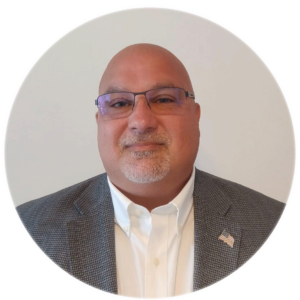In the ongoing journey to combat healthcare fraud, the strength of your whistleblower claim depends significantly on the quality of evidence you provide. This guide is designed to empower healthcare professionals with the insider knowledge on how to gather compelling evidence effectively
By understanding what types of evidence are most impactful and learning safe collection practices, you’ll be better prepared to support your claim and work confidently alongside your healthcare fraud attorneys.
Let’s start by looking at the forms of evidence that you can use to strengthen your case.
Types of Healthcare Fraud Evidence
If you work in healthcare, medical billing, or medical coding, and suspect fraud may be occurring in your organization, here are some potential ways to collect evidence to support your claim.
- Correspondence: Gather any emails, notes, text messages, letters, voicemails, or meeting minutes that request or suggest fraudulent practices. This direct evidence can be the most powerful in demonstrating intent.
- Incorrect Billing Statements: Look for discrepancies in billing statements that do not match the services provided. This might include charges for procedures that were never performed or duplicated charges for a single service.
- Medical Records: These are crucial and should accurately reflect the treatment provided. Evidence of altered or falsified patient records can be a strong indicator of healthcare fraud.
- Contracts or Financial Records: Any unusual contracts or financial records that suggest improper financial relationships between providers might indicate kickbacks or other illegal incentives.
- Company Policies: Sometimes, the devil is in the details. Review company policies for anything that encourages or permits unethical billing practices.
- Kickback Funds or Items: Be alert to any unexplained assets or reimbursements that could be construed as kickbacks.
Once you know what kinds of evidence you’re looking for, the next step in your whistleblower journey involves identifying and properly collecting this evidence in your organization.
Tips for Collecting Evidence
- Consult an Attorney Before Taking Action: If you suspect healthcare fraud, your initial step should be to contact a whistleblower attorney before making any significant moves with the evidence. They will provide guidance on legally sound and strategic actions to follow and advise on what to focus on when collecting evidence.
- Document Everything: Keep a detailed record of all findings, noting dates, times, and the context of each piece of evidence.
- Maintain Confidentiality: Secure the confidentiality of your gathered evidence. Work with your healthcare fraud attorney to use encrypted storage solutions to safeguard digital files and secure physical documents in a locked and safe place.
- Stay Organized: Organize evidence by category and date, which will help your legal team review and utilize the information effectively.
- Limit Discussions: Remember to discuss your findings only with your whistleblower attorney to protect the integrity of your case and prevent any unauthorized disclosure.
By adhering to these tips, you can gather evidence confidently, knowing you are building a strong foundation for your case.
The Benefits of Working with a Whistleblower Attorney
Partnering with a skilled healthcare fraud attorney significantly enhances your position. These professionals help guide you in evidence collection, while ensuring your rights are protected throughout the process.
While they are your go-to lifeline during your case, it’s important to remember that confidentiality is key. Remember that until a final verdict is ruled on your case, the information therein remains under seal. This ensures your involvement remains protected while the authorities investigate the allegations. Your attorney will make sure that all communications about your case adhere to legal standards, safeguarding you and your claim.
Do You Have Evidence of Healthcare Fraud at Your Job?
If you suspect fraudulent activities within your workplace, the first step is not to act alone. Consulting with a whistleblower attorney ensures that your case is handled correctly from the start. Contact DJO for a free confidential review of your case.
We operate on a contingency basis, which means you won’t owe us anything unless we succeed. By coming forward, your insights could help minimize and prevent fraudulent practices, while potentially earning you up to 30% of any funds recovered by the government. Your courage and actions can make a significant difference!

authored by Christopher J. Piacentile
Director of Investigations DJO Whistleblower Law Group


